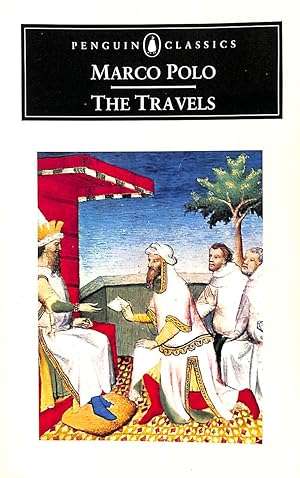Marco Polo (1254-1329) has achieved an almost archetypal status as a traveller, and his Travels is one of the first great travel books of Western literature, outside the ancient world. The Travels recounts Polo's journey to the eastern court of Kublai Khan, the chieftain of the Mongol empire which covered the Asian continent, but which was almost unknown to Polo's contemporaries. Encompassing a twenty-four year period from 1271, Polo's account details his travels in the service of the empire, from Beijing to northern India and ends with the remarkable story of Polo's return voyage from the Chinese port of Amoy to the Persian Gulf. Alternately factual and fantastic, Polo's prose at once reveals the medieval imagination's limits, and captures the wonder of subsequent travel writers when faced with the unfamiliar, the exotic or the unknown.
Part of the fun of reading The Travels, of travelling with Polo into new lands, is the sheer storytelling verve of the book. This is one of those classics that is actually fun to read. Indeed, Marco Polos eagerness to tell a good story sometimes may cause him to play a bit fast and loose with the facts. Chapter 5, From Peking to Amoy, shows Marco Polo and his father and uncle playing a decisive role in the siege by the Great Khan of a city called Siang-yang-fu. As Marco tells it, the siege has been going on for three years without success, until Messer Niccolò and Messer Maffeo and Messer Marco declared: We shall find you a means by which the city will be forced to surrender forthwith. In response, the Great Khan told Messer Niccolò and his brother and his son that nothing should please him better, and told his troops to do as the Venetians told them. Promptly they manufactured a mangonel (a kind of trebuchet or catapult) that could launch 300-pound stones, and with this new technology they forced the people of Siang-yang-fu to surrender. And the credit for this achievement was due to the good offices of Messer Niccolò and Messer Maffeo and Messer Marco (pp. 208-09). Its a lovely story, and no doubt it would have brought pride to the heart of many a Venetian reader.

